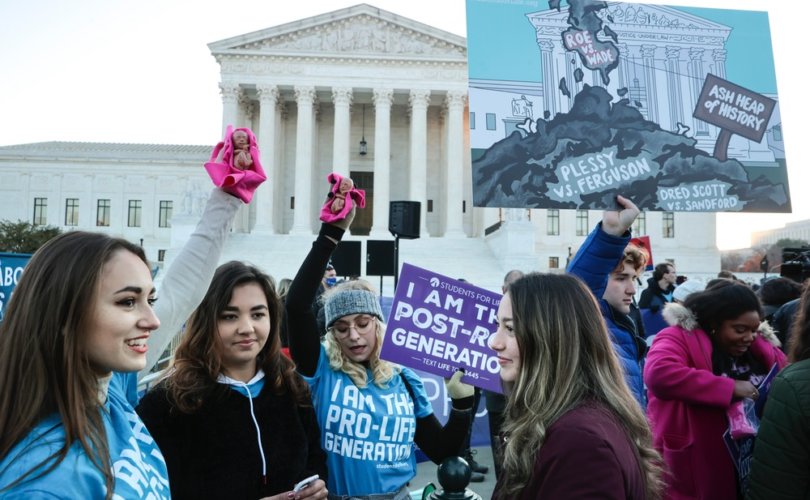WASHINGTON, D.C. (LifeSiteNews) – The United States Supreme Court released Friday a pair of decisions in the challenges to a Texas law effectively banning abortions upon detection of a fetal heartbeat, rejecting the Biden administration’s challenge to the law while allowing abortion industry lawsuits to proceed in the lower courts.
Senate Bill 8, the Texas Heartbeat Act, requires abortionists to screen for a preborn baby’s heartbeat and prohibits abortion if a heartbeat can be heard (generally as early as six weeks), with exceptions only for medical emergencies. Its unique enforcement mechanism, which “exclusively” empowers private citizens to bring civil suits against abortionists instead of state prosecutions, has been credited for the Supreme Court’s September decision not to block it from taking effect.
Oral arguments last month indicated that a majority of justices were at least somewhat sympathetic to the state-level challenges but less so to the federal one, which was reflected in the outcomes.
The first decision in United States v. Texas runs a mere three sentences, and simply declares the Biden administration’s challenge to the law as “improvidently granted,” with left-wing Justice Sonia Sotomayor the only noted dissenter.
The second decision in Whole Woman’s Health et al v. Jackson (the abortion industry’s suit against the law) runs 48 pages and is more complicated. The majority opinion, by Trump-nominated Justice Neil Gorsuch, rules that challenges to the law prior to it being enforced are permissible against “some of the named defendants but not others.”
The “ultimate merits question — whether S.B. 8 is consistent with the Federal Constitution — is not before the Court,” Gorsuch stressed. “Nor is the wisdom of S.B. 8 as a matter of public policy.” While the decision is not a victory or defeat for either side, it critically allows the law to remain in effect during those lawsuits, meaning its deterrence of abortions will continue in the Lone Star State.
Chief Justice John Roberts joined the Court’s liberal wing in a partial concurrence and partial dissent that appears to indicate hostility to the law should the “ultimate merits question” reach the justices. He writes that the law’s “ongoing chilling effect” should be resolved and given “appropriate relief without delay,” and takes it as a threat to “the role of the Supreme Court in our constitutional system” to be the final word in “say[ing] what the law is.”
Conservative Justice Clarence Thomas, meanwhile, wrote his own partial dissent arguing that the challenges to the pro-life law should be dismissed entirely for “lack of subject-matter jurisdiction.” He also noted the “irony of this case” that “SB 8 has generated more litigation against those who oppose abortion than those who perform it.”
Friday’s rulings offer little new to those trying to predict how the Court will ultimately rule on abortion bans more generally or the validity of Roe v. Wade, both of which are currently under consideration in the lawsuit against Mississippi’s 15-week abortion ban.
“We are grateful that the Supreme Court practiced judicial restraint today and stopped the Biden administration’s pro-abortion campaign against the strongest Pro-Life law being enforced today,” commented Texas Right to Life Director of Media and Communication Kimberlyn Schwartz. “While we continue to fight for this policy in the lower courts, Texas Right to Life celebrates that the Texas Heartbeat Act will continue saving between 75-100 preborn children from abortion per day. The success of our efforts is embodied by each individual life that is rescued.”

